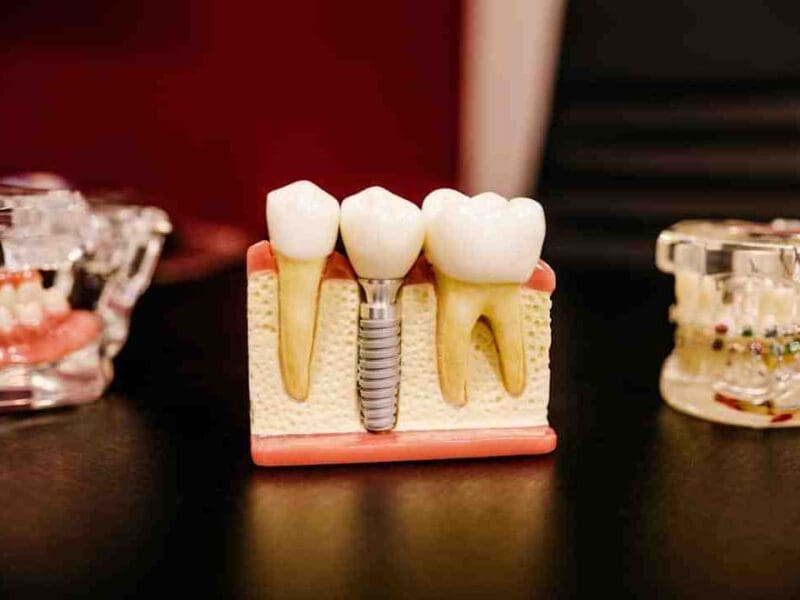
8 Causes Of IVF Failure
In vitro fertilization (IVF) is a widely used assisted reproductive technology to help couples struggling with infertility conceive. While proven effective in many cases, it can sometimes fail to produce a successful pregnancy. Understanding the potential causes of IVF failure can help couples work with their fertility specialists to optimize their chances of success.
Eight Potential Causes of IVF Failure
1. Insufficient Ovarian Response
At the start of the IVF process, the fertility expert prescribes medications to stimulate the ovaries to produce more eggs. The ovaries may not respond adequately to the medications, resulting in fewer eggs collected. It could be the woman already has a low ovarian reserve, has had trouble responding to medications, or has some other underlying health issue. A fertility specialist may adjust the types of medications or dosages used to maximize the ovarian response.
2. Poor-quality Eggs or Sperm
Even if the ovaries respond adequately to the medications and produce enough eggs for collection, the quality of these eggs may be subpar. Poor-quality eggs are less likely to result in a successful pregnancy, so the embryologist examines them before use. The same issue may occur with the sperm, as its quality and motility are necessary to fertilize an egg. Semen analysis may help determine if the sperm on hand will be suitable for IVF. If not, the IVF professional may recommend using donor sperm.
3. Poor Embryo Quality
Once the eggs are fertilized and become embryos, an embryologist should evaluate them before implantation. Sometimes embryos may not develop healthy enough, usually because of genetic and chromosomal abnormalities. The embryologist may discard embryos with questionable integrity, as these have lower chances of producing the desired results. Distinguishing a healthy embryo from an unhealthy one can be difficult, so the experience and expertise of a fertility specialist are invaluable.
4. IVF Lab Factors
The success of IVF largely relies on the environment where it takes place. The conditions in the laboratory need proper management because any disruptions can lead to IVF failure. Temperature, oxygen and carbon dioxide levels, pH levels, and the presence of any contaminants should all be closely monitored. Experienced embryologists follow the correct protocols for handling and storing embryos to reduce the risk of complications.
5. Problems With Embryo Transfer
Any mistakes with embryo transfer can lead to IVF failure. The right transfer catheter and precise insertion may affect the outcome. The uterus also needs adequate preparation for embryo implantation, and the wrong timing may lead to unsuccessful outcomes. Embryos should be handled properly to prevent damage.
6. Embryo Implantation Failure
Once a healthy embryo is deemed suitable for implantation, the fertility doctor will place it into the uterus. Even though an ideal embryo was selected, it may not attach to the uterine wall and implant. That might be due to factors like a hostile uterus environment caused by endometriosis or uterine fibroids, uterus infections, or hormonal imbalances. The fertility specialist may recommend medications to help improve the chances of successful implantation.
7. Poor Lifestyle Choices
IVF failure may happen due to the lifestyle choices of the couple undergoing this procedure. Smoking, drinking alcohol, and taking certain recreational drugs may interfere with the success of an IVF cycle. Before egg and sperm retrieval, IVF candidates should eat healthily, exercise regularly, and get enough rest for their bodies to be in peak condition. After implantation, the woman should avoid strenuous physical activity and extreme stress. She should also maintain a healthy diet and avoid smoking or drinking. Following the doctor’s instructions for medications and vitamins can also help increase the odds of pregnancy success.
8. Unexpected Complications
Even after taking all the necessary precautions and following the correct protocols, IVF may fail due to unforeseen complications. Unexpected issues with the uterus, endometrial lining, or any other part of a woman’s reproductive system may prevent an embryo from thriving. The fertility doctor may recommend further tests to uncover any underlying conditions causing IVF failure.
These are some of the potential causes of IVF failure. Understanding them may help identify any deficiencies in the IVF process and take measures to improve its success rate. When couples work with experienced IVF professionals, their chances of having a successful pregnancy are much higher. Couples struggling with infertility should find a reputable IVF clinic offering quality services and personalized treatment plans.







